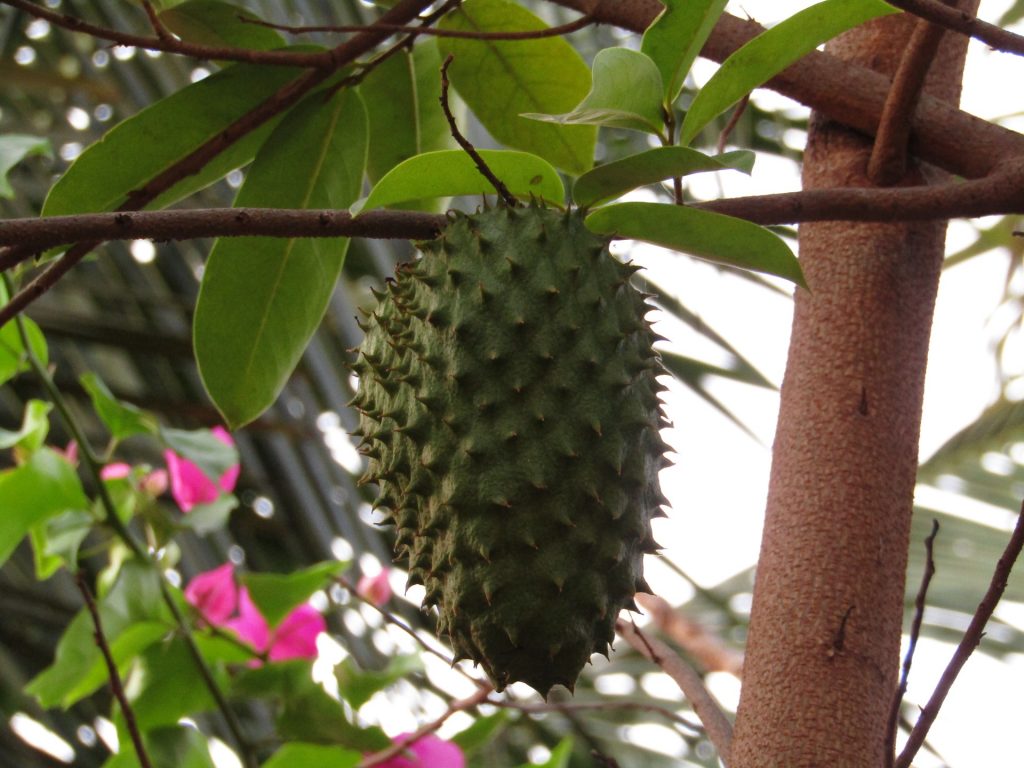
The Soursop Tree (Annona Muricata), from the West Indies, is a small tree up to 6 meters tall. It exists in almost all tropical forests. The leaves of the Soursop Tree are light green, with yellow flowers and usually hide a fruit, produced almost all year, the Soursop. This fruit looks like a big pineapple and has a light green thorny bark weighing between 750 grams and eight kilos.
Soursop has a white pulp inside with lots of seeds, offering a distinct bittersweet flavor and is rich in fiber, vitamins and other nutrients. The analysis of 100 grams of soursop revealed that there were only 70 calories, with vitamins B and C, minerals such as magnesium, calcium, potassium, phosphorus, sodium, carbohydrates and fibers.
This plant has been used for a long time for health care, especially by indigenous tribes.
In Brazil, the infusion of soursop leaves is used to fight liver problems and the oil of the leaves and green fruit, mixed with olive oil, serves to calm rheumatism and arthritis.
In Peru and other Central American countries, soursop is used to reduce high blood pressure and soothe the heart.
According to experts, the consumption of soursop could be beneficial for gastritis, ulcers, obesity, constipation, diabetes, digestive problems, liver diseases, hypertension, depression, insomnia, migraines, flu, diarrhea, and rheumatism. There is also preliminary scientific testing, with no definitive conclusion to date, that soursop may have a substance that helps slow down the development of degenerative diseases.
Soursop can be consumed naturally, in infusions, in juice or capsules.
But all is not that benefits, this plant also has many contraindications to know.
Soursop is contraindicated in the following situations:
- Consumption of soursop in large amounts can cause sleep, nausea, and vomiting;
- It should not be consumed with drugs;
- Can interrupt the pregnancy;
- The fruit contains substances that can alter the nervous system, causes delirium and even leads to Parkinson’s disease;
- The bark contains substances equivalent to cyanide, which can cause intoxication.
- Have low blood pressure.
This text is an awareness. Depending on the season and the moment in which you are, it is up to everyone to decide whether to consume this food. The dosage and frequency depend on the nature and physical condition of each Human Being.




